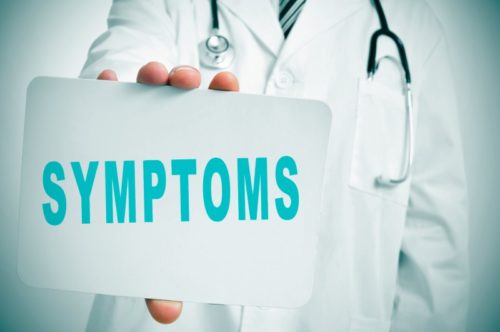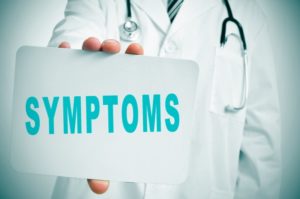A sinus infection, also known as sinusitis, is one of the most common infections that a person can have. According to the National Center for Health Statistics, over 35 million adults in the United States were diagnosed with a sinus infection in the year 2017. And many others may have suffered from sinus infections without ever seeing a doctor. Despite sinus infections being so common, they are still one of the most uncomfortable infections experienced and require adequate care and attention, whether being treated at home or by a doctor.
A sinus infection occurs when your sinuses, which are cavities located in the front of the face around the eyes and behind the nose, become blocked or too much mucus builds up causing inflammation and swelling. When sinuses are functioning normally, they lighten the weight of the skull, and also help filter and moisten the air you breathe. When sinuses are blocked, your head can feel heavy or full, your voice may become raspy, and you can even experience tooth pain, among other aggravating symptoms.
In this article, we will identify and discuss the most common signs of a sinus infection as well as when it is necessary to see a doctor to alleviate your pain and treat the infection. Whether you or a loved one is suffering from a sinus infection, it is important to know that sinus infections are usually relatively easy to diagnose and get relief from, especially once you know what to look out for and what your next steps should be. Remaining calm and optimistic is vital as you navigate your journey to regain your health.
Signs of Sinus Infection
If you are experiencing a sinus infection, you may have some or all of the most common symptoms listed below. But just because you only have one or two of these symptoms does not mean you do not have a sinus infection.
 It’s important to take inventory of your body, noting where you are experiencing pain or irritation, how severe your pain or irritation is, and how you are feeling in general. Once you have self-monitored for a short time, you’ll know if your sinus infection is something you can treat at home or if it’s time to see a doctor.
It’s important to take inventory of your body, noting where you are experiencing pain or irritation, how severe your pain or irritation is, and how you are feeling in general. Once you have self-monitored for a short time, you’ll know if your sinus infection is something you can treat at home or if it’s time to see a doctor.
Sinus Pain
Pain in your sinuses occurs when suffering from a sinus infection. This usually feels like mild to intense pressure in any of the areas where you have sinuses: your forehead, cheekbones, around your nose, between your eyes, and even in your upper jaws and teeth.
Sinus pain can often feel like a dull throbbing and may lead to a sinus headache. Headaches such as these are often worst in the morning because fluids have been building up throughout the night as you’ve been sleeping. If the barometric pressure in the environment changes suddenly, such as when you’re traveling in an airplane, your headache may also worsen.
Nasal Congestion and/or Discharge
When your sinuses are inflamed, you may have difficulty breathing through your nose. We colloquially refer to this as a “stuffy nose,” though congestion can also result in the opposite: a “runny nose.” When mucus production is normal, we don’t notice it, but when you have a buildup of mucus, you may feel it dripping down the back of your throat and nose.
If your mucus is yellow or green and thicker than normal, and you feel as though it’s either difficult to breathe properly or that you’re blowing your nose more than usual, you likely have a sinus infection.
Cough
As nasal discharge drains down the back of your throat, it can cause further irritation. This may lead to a persistent cough. You might also notice that your cough worsens when you lay down for bed or first thing in the morning when you get up.
Another thing to look out for is how you’re coughing. Often, when suffering from a sinus infection, people cough up mucus since it is built up in your sinuses and throat. As we mentioned above, pay attention to the color of your mucus if you are coughing it up, because yellow or green mucus is a sign of a sinus infection.
Fatigue
If you feel weak, tired, or generally less energetic than usual, you are probably experiencing fatigue. People become more fatigued when they are sick because their bodies are using much of their energy to fight off the infection that’s occurring.
That’s why it’s essential that you are attempting to rest as much as possible, even if getting to sleep is more difficult than it normally is. Sometimes laying down with your head elevated can alleviate some of the irritation and help you rest easier.
Tooth Pain
Because you have sinus cavities located under your cheekbones directly above your gums, you may feel as though you have a toothache when you actually have a sinus infection. Your teeth might throb or you could feel mild to intense pressure in your jaws.
Fever
A fever is when your temperature rises above normal. A normal body temperature is usually around 98.6 degrees Fahrenheit or 37 degrees Celsius, though it can vary from person to person. When you are sick, your body may automatically elevate your temperature in order to help fight off an infection.
 When to See a Doctor
When to See a Doctor
If you have a simple sinus infection, sometimes at-home treatment with over-the-counter medications such as a decongestant. Physicians generally advise not to use an over-the-counter decongestant for more than 3 days, however, as it can make you more congested. Warm compresses and saline nose drops may also help.
However, sinus infections generally require seeing a doctor. You don’t want your sinus infection to get more serious, and the discomfort that accompanies such infections is best treated by a medical professional.
You should make an appointment with your doctor if any of the above symptoms last more than ten days or keep coming back over a short period of time. Also, contact your doctor immediately if you have a high fever (anything over 102 degrees Fahrenheit), a severe headache or facial swelling, problems with your vision, or a very stiff neck.
Contact Us for Sinus Infection Treatment
If you or a loved one is suffering from a sinus infection, we are here for you. The Southern California Sinus Institute is California’s premier sinus center, and we offer a variety of treatments to alleviate your symptoms and address the root cause of your infection. Our services range from an in-office nasal endoscopy to deviated septum repair in more serious cases.
Whatever is causing your pain and discomfort, we can help. Contact us today to set up an appointment and take the first step in your journey to regain your health and vitality.



 When to See a Doctor
When to See a Doctor